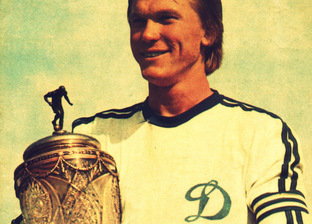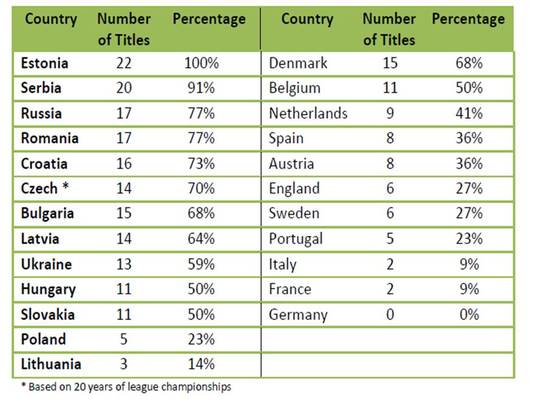
Kuper and Szymanski argue that clubs in capital cities are not as successful as those in provincial cities because football matters less in capitals - because of the availability of other "distractions". It seems as well that history matters. Real Madrid managed to break the pattern of failure of capital city clubs because they had built their stadium, support and brand during the years of Franco's dictatorship. They note that totalitarian regimes tend to send resources (including football talent) to capital cities because that is where they and the bureaucrats live. There is a quote in Wilson's book on Ukrainian football before independence from the Soviet Union that Dinamo KIev were so dominant in Ukraine because the political regime allowed them to hoover up all of the best talent so that they could "represent" Ukraine in the Soviet league. He says
For half a century Dynamo [Kiev] reigned supreme in Ukrainian football, and everybody else still lives in their shadow.
"In the Soviet period, Dynamo were almost sure of beating every other Ukrainian team", Jozsef Szabo, a former Dynamo player who was appointed coach for a second time...explained. "It was like a pyramid in Ukraine with Dynamo at the top". Crucially, the patron of the club through the seventies and eighties was Volodymyr Scherbytskyi, the leader of the Ukrainian Communist Party. "He was a great football fan", Szabo said, "and if there was a good player at Dnipro or Shakhtar or some other Ukrainian club he would make one phone call and the player would be in Kyiv - no money, or anything like that".
It would be difficult to overestimate the extent to which Dynamo dominate the psychological landscape of Ukrainian football.
It certainly does seem that there is a path dependency in these countries. Jonathan Wilson's book is not very positive on the organisation and quality of the leagues in these countries so we shouldn't expect to see these countries copying Real Madrid and producing a Champions League winner any time soon.

 RSS Feed
RSS Feed